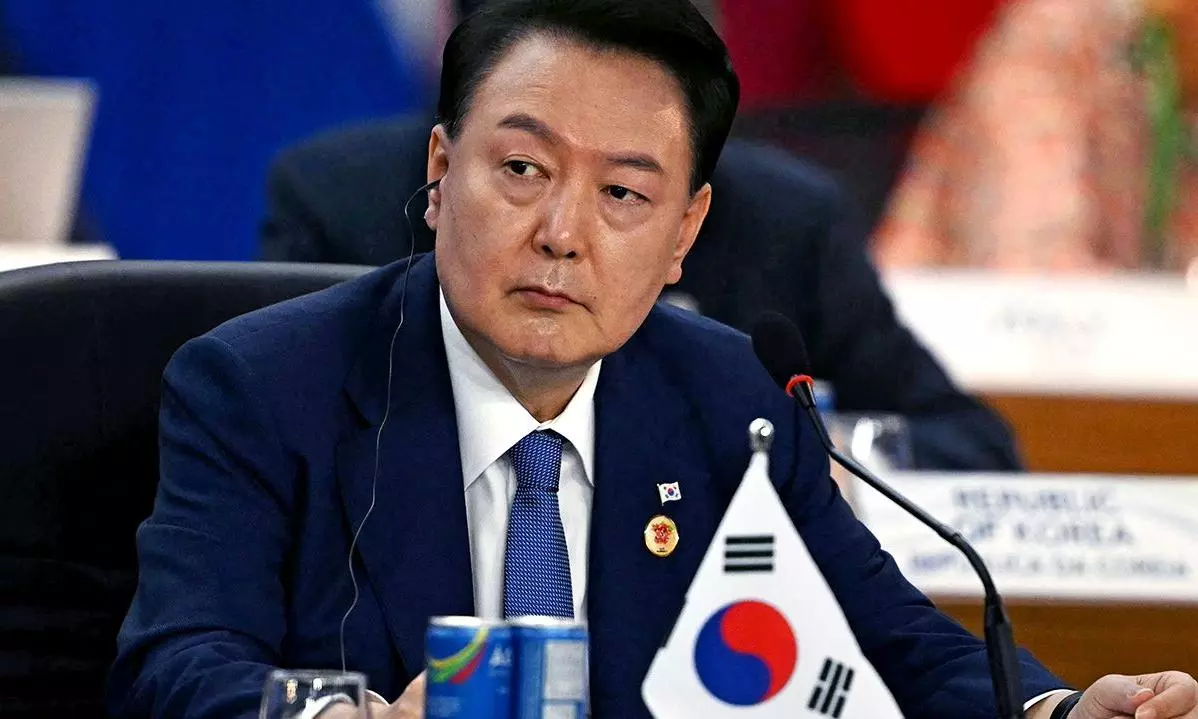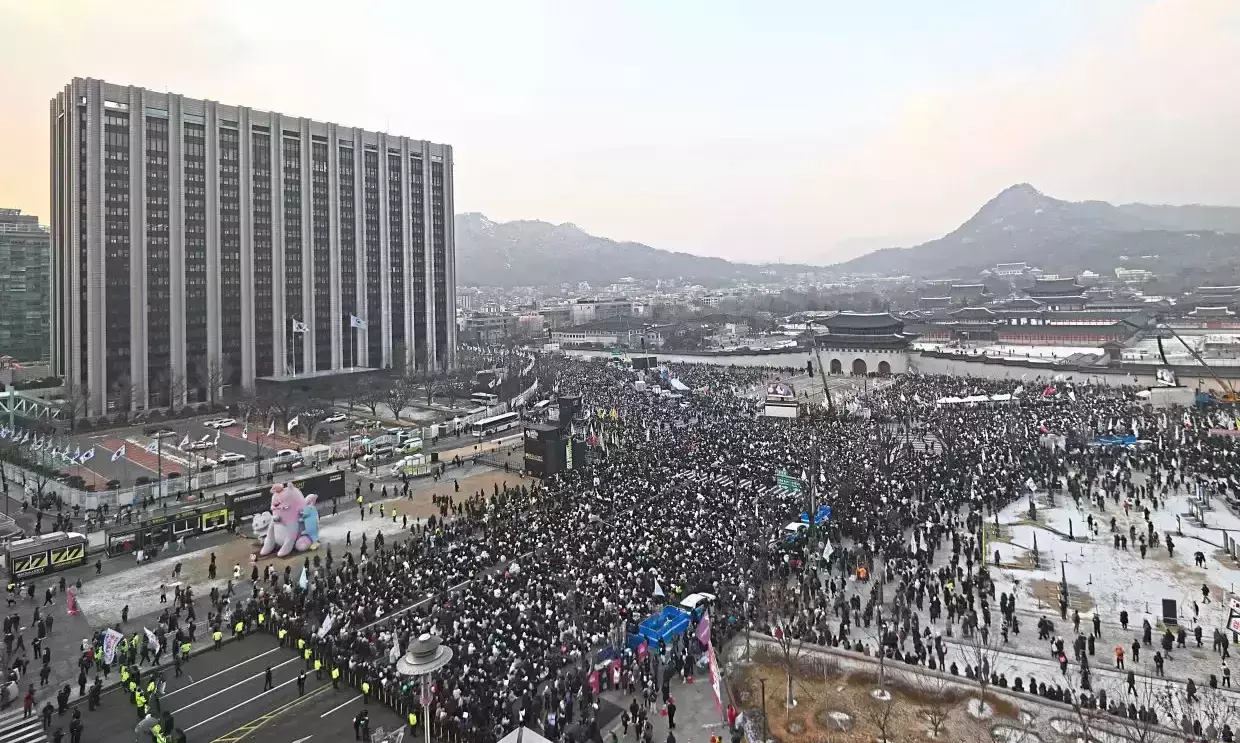
Arrest warrant issued for impeached S. Korean President Yoon
text_fieldsSeoul: A Seoul court has approved a warrant to detain impeached President Yoon Suk Yeol, marking the first time a sitting South Korean leader faces arrest. The Seoul Western District Court issued the warrant on charges of orchestrating the December 3 martial law declaration, insurrection, and abuse of power, according to legal sources.
The Corruption Investigation Office for High-ranking Officials (CIO) filed the request after Yoon ignored three summonses to appear for questioning regarding the brief martial law imposition, which lasted six hours before being overturned by a parliamentary vote. Law enforcement officials are probing whether the declaration constitutes rebellion, a charge that nullifies presidential immunity from prosecution.
The warrant grants the CIO a 48-hour window to detain Yoon for questioning and file for an arrest warrant. However, the Presidential Security Service has blocked investigators from accessing Yoon’s office and official residence, citing military security concerns. While CIO Chief Oh Dong-woon stated that court-issued detention or arrest warrants cannot be obstructed, Yoon’s defense team argued that the CIO lacks authority to investigate insurrection, which traditionally falls under police jurisdiction.
Yoon has been suspended from office since December 14, following an impeachment vote by the Opposition-controlled National Assembly over his martial law declaration. The Constitutional Court has begun deliberations to decide whether to remove Yoon from office or reinstate him, with a ruling expected within 180 days from the impeachment date.
The martial law imposition and Yoon’s failure to provide evidence for his claims of election fraud in April’s parliamentary elections have fueled political controversy. Yoon alleged, without substantiation, that the Democratic Party's landslide victory was due to election rigging, a claim dismissed by South Korea's Election Commission as baseless.
The investigation into Yoon's actions has heightened political tensions in South Korea as questions remain about the implications of his brief but contentious martial law declaration.
With IANS inputs
























